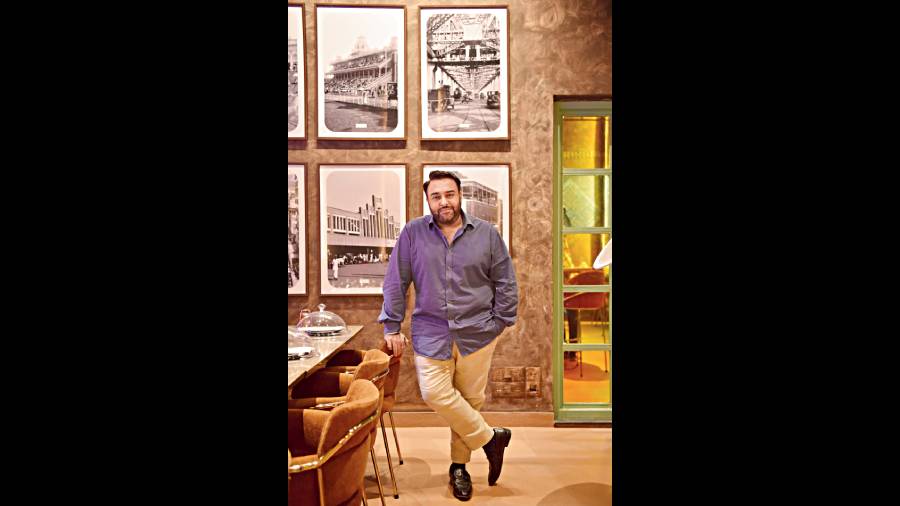When you meet Zorawar Kalra, founder and director of Massive Restaurants Pvt Ltd, you cannot help but notice the glint in his eyes when he talks food. Just when you you expect him to crib and talk about how bruised the F&B industry has been, courtesy the pandemic, he is the one who would speak about how it’s going to flourish like never before in the future and his sheer determination, optimism and far-sightedness is bound to pep you up. Such is the vibe of the restaurateur son of the legendary Jiggs Kalra. On a rainy evening in Calcutta, t2oS had a heart-to-heart conversation with the inveterate foodie.
Congratulations on getting Farzi Café to Calcutta! What finally worked?
Thank you so much! So during the launch of Pa Pa Ya in 2018 we were in talks with one of the biggest families in Calcutta who wanted our franchises, very good people but due to some legal things it didn’t work out. So that took one year. Then for Farzi Café, I found a very good partner (Amit Goyal) in 2019 but then we were looking for places, when we got a place and started working, the lockdown started. This restaurant was almost ready for more than a year but has been in limbo due to the pandemic. Farzi Café is my most important brand, this is my 13th outlet in India and 23rd Farzi in the world. Not only can I compromise with the location, I need to keep in mind that there can be issues with the local partner if they are not the right people. But that fear I didn’t have with my present partner. The biggest thing is, with both Pa Pa Ya and Farzi Café, I am getting the love back from the people (of Calcutta) and now it is the top priority city for me.
Tell us the story behind the name Farzi Café…
Farzi means nakli or jaali, and in our case we took a take on the word illusion. So what you see is not what you get. Aap mujhe bol rahe ho k aap mujhe dal chawal de rahe ho, but aapne Arincin de diya. So aap farzi kaam kar rahe ho. That’s the whole goal and it truly exemplifies what we are trying to do in this restaurant, we are trying to do something avant-garde. So, the youth was losing touch with their culture through their dietary habits… they were eating pizza and burgers and that was putting me off. I built Farzi with the single idea of making Indian food hip and cool again so that the youth loves it and it remains relevant forever. If all future generations keep loving this food, Indian food will never go away.
If you change your dietary habits, in my opinion you are throwing away traditions. In that sense I was a sucker for Indian-ness. I love my country, I love Hindusthani cheezein. If I don’t love my country and propagate that tell me who will? I should promote my food. My country has produced the greatest cuisine with the largest variety, the deepest culinary philosophy with the most extensive level of sophistication. Just look at Bengal… the variety! There must be a thousand dishes. You go to Odisha, another thousand dishes… go to Kerala, Punjab, Kashmir…! The goal of Farzi Café is to make sure the relevance within the country remains forever by getting the youth addicted to it, by placing it in a nice manner… nice funky vibe, with a DJ playing.
Farzi Café Calcutta beautifully captures the essence of the city through its decor…
Yes, every Farzi pays homage to that city through its menu… like here we have the Aloo Dum with jhaal muri, then hilsa. Bengal has the best culinary sophistication, the way they care about food, almost obsessed.
With so many brands in your kitty, how do you decide which brand to open where?
The number one priority is to find out whether our cuisine is suitable for the current market dynamic of that city. Then there is the location. We know our brands are built for Indians. As for Farzi, it’s in nine countries, so it’s built for everybody. In India to open a Farzi Café, that too in a gourmet city like this, is a no-brainer. There are copies available in the city but the original rules!
So, why didn’t you open an outlet like Bo Tai, which is so cool and youth-centric?
I will open in Calcutta for sure but in an year or two because for Bo Tai I need that perfect location with that view. Bo Tai has to have an alfresco space. My newest Bo Tai is opening in Goa in Vagator. The vibe there is magical.
Let’s talk about the pandemic. The unprecedented circumstances had a huge impact on every industry. How did you keep yourself motivated?
For me last year was much harder than this year. This year there was hope, the most important thing for human beings. Last year we didn’t know what’s going to happen, when lockdown happened we didn’t know it will be for a year, two years or if the entire human race will die out. When lockdown was lifted, people were relieved but it was slow to pick up. Now, see! All the restaurants are packed and it’s good, because they need to be, else they will die. This time I am not anxious, I am telling you by November and December, the F&B (industry) will see a season that is beyond anything we have seen in the past two decades. It’s guaranteed. Pent-up aggression... the demand curve is going to go through the roof. People are getting vaccinated, irritated staying home, and Indians anyway love eating out more than any other form of entertainment. The F&B industry is 40 times larger than Bollywood. We are the primary way Indians enjoy themselves and spend money.
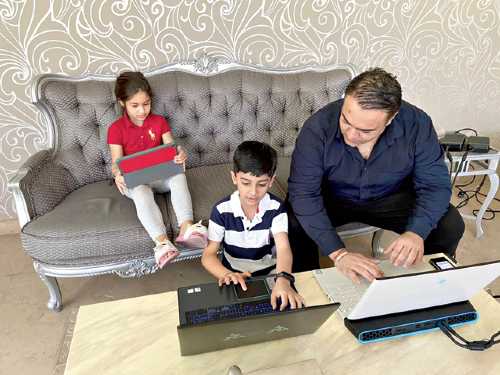
Zorawar with his daughter Aaliyah and son Fateh at their residence
During the pandemic is there any lesson you learnt?
First thing was to be able to press a pause button. Retool and rekit yourself to be able to reassess the whole business from a cost perspective. There are so many P&L items (profit and loss) that lot of them are inconsequential to your business, but because you are doing it for years you need to sponsor them. So, I figured that out. That has made our company lean without having to fire people. Yes, where there were unnecessary bloating, we had to remove but mostly it wasn’t about reducing people but other costs that were taking away a lot of our profit.
Since you predicted that the F&B industry will flourish, what do you think is going to be the future trend?
The current format of restaurants will thrive, restaurants and nightlife will pick up more especially in a millennial city like Calcutta. Then something like my Louis Burger will do well…
We were coming to that, Louis Burger is the newest baby from your brand…
Louis Burger is purely virtual. There is no physical store. It’s going to be cloud kitchen with best ingredients possible. Will be delivered in beautiful containers through direct delivery or through aggregators. So, answering your previous question, cloud kitchens will continue doing well.
Do you think with big brands doing home deliveries, the charm of dine-in will be lost?
Nope. After six years of Farzi Café, I have started deliveries… I don’t mind the aggregators, deliveries are going to be a larger chunk. For us it used to be around 10-12 per cent, but now it will be around 30-35, which is very healthy.
But even during the ongoing pandemic, Massive Restaurants is on an expansion spree — both national and international. What’s the secret to it?
It’s called attention deficit disorder (laughs). I mean, there are two things: I always see a glass half full, am eternally optimistic. I see positivity in every scenario. Whenever there is a crisis and somebody is losing, someone else is gaining. You got to be the other guy. You can’t be the idiot who is losing everything, you will be dead then. So I renegotiated the rent. I signed seven new locations and all these during the lockdown because I got the deal at half the rent. Eventually, sab recover toh hona hi hai. So I jumped and grabbed the opportunity, when many are whining about the present situation. Now when it opens up, and if there is no third wave, things are going to be fabulous.
Middle East has been receiving a lot of attention from you.
Yes, we are doing fantastic! Getting just great response. We are in Dubai, Kuwait, Qatar, Oman, Saudi Arabia… all Farzis.
You have Farzi in London too…
Very, very good response globally. Places like Kuwait, Qatar, London and now we will be opening in Canada shortly. We are blown away with the acceptance of the brand and in the whole of the Middle East we are running without liquor, imagine! The goal was to stay focused and not go all over the place, and that worked.
What intrigues you about Calcutta as a market? Are you satisfied with the way Pa Pa Ya has been welcomed?
What works for us in Calcutta is that the clientele is very sophisticated and they understand the food. Both Pa Pa Ya and Farzi Café have a modern concept. They are unique and not standard run-of-the-mill restaurants. A city like Calcutta will understand this. So it made sense for us to open here. Our goal is to ensure the standards are maintained and we keep innovating.
Farzi Café being your second venture in the city, what other brands do your foresee opening here?
All our main brands that we love and adore so much will come to Calcutta at some point. The next few restaurants will be company-owned unless we have great partners like him (Amit Goyal). This city is working for us and I think Calcutta is more important to me than Bombay clearly. I think there’s more loyalty towards a brand in Calcutta. I think the city does not have a crazy supply problem the way Bombay does. And in general people understand food way better. Delhi and Calcutta I would say are equal.
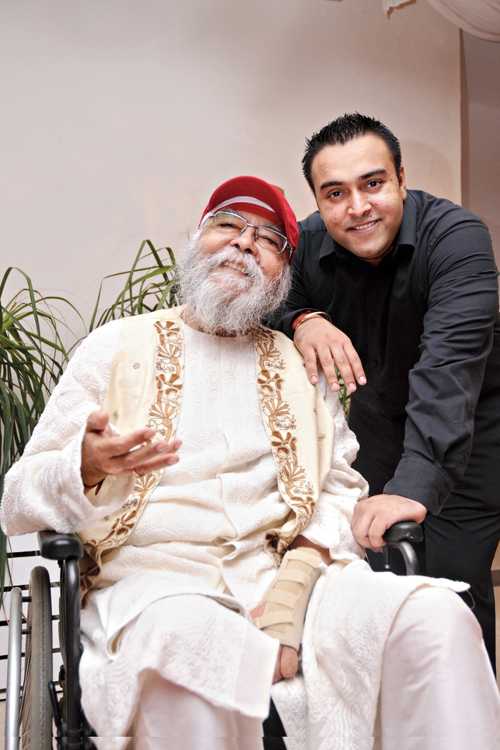
I remember you telling me before how your dad (Jiggs Kalra) loved Calcutta…
It was always his favourite city. (Smiles)
How much of an influence was your father to you when you were growing up?
It’s been entirely dependant on my father. I think he is the one who… see I feel you cannot instil something in a child but harbour the development. The passion for restaurants in me existed, he didn’t introduce it. But when I saw his lifestyle, and his work, it was very exciting to me. At early pre-teenage I think around 12, I think I decided what I wanted to do. But even at that age I didn’t want to do something small, I had this entrepreneurial bent of mind. I had decided to do a business training, make it big and always had Indian food on my mind because nobody knows the cuisine better than Indians. My father has instilled this huge responsibility towards Indian food in me.
What else did you learn from him?
Work ethics and dedication. He was the man who would sit in front of the computer the whole day and figure out one recipe, how to fix it and perfect it. He thought it was his and our responsibility to make the world realise how brilliant Indian food is, and he believed in it so strongly that it got transferred to me almost genetically. He used to talk about it all the time and as a child it got ingrained in me because I believed in it.
So while he cooked, did you ever give him your feedback?
I dare not say it’s good or bad (laughs) but I used to give my comments. Like if he would put goat cheese in chicken seekh kebab and I would tell him if I didn’t like it, he would laugh at me and say ‘what do you know?’. I think my brother had a palate closer to his than I did.
So, did you learn to cook anything eventually?
Me?! No! An European-style omelette at max, but the best that you have eaten may be. I don’t want to cook, I am the guy who runs the orchestra (laughs). I want to control them. I care a lot about the food itself, about tasting it, my job is to give ideas…
You have always mentioned how you are inspired by your father’s work ethics. Anything else you have learnt from him which you follow to the T?
My father’s work ethics was something I enjoyed getting from him the most. It was unparalleled. He spent entire days working on his computers, researching multiple sources and then combining his version. His attention to details, nuances, I learnt from him the most. He also taught me to try for perfection, knowing you will never achieve it but strive for it in everything you do.
Do your children understand what you do? Do you think they have the knack or passion for food like you did?
My children definitely see me doing what I do. They enjoy going to our restaurants. They probably don’t realise the efforts I put in, they think it’s all fun and games but they are small... nine and seven. (Pause). I don’t think they have the passion for food business, my daughter is passionate about sports, I think she will try and become a professional golfer. My son, at the moment, is still trying to find his feet... but both of them are foodies, especially my daughter. So love for food is there but not the professional passion I think.
You guys were one of the firsts to introduce modern Indian cuisine but over the years the concept of modern Indian cuisine has undergone so many modifications. What according to you is the real modern Indian cuisine?
Modern Indian cuisine is a reinterpretation of traditional Indian food using perhaps global ingredients, modern techniques or molecular or perhaps post-modern techniques but, most importantly, it should be about creativity. When Farzi opened in 2014, it was the first one to do this. Gosh, it’s going to be seven years! And then it became so successful that people started copying us, zabardasti liquid nitrogen they were adding.
What is not modern Indian cuisine is something like gimmicks. You saw the bubble in Farzi Bubble, it created a theatrical experience but also had an impact on smell. So when you usually drink a cocktail or a liquor you don’t get the smell of it that much but it does with what we created. So it’s about showing restraint, being sensible, and there has to be logic… you just can’t add everything and call it modern.
At a time when everything is so competitive, and there’s so much of copying of some of your concepts or iconic dishes, how do you react to it?
I would be lying if I don’t say that it is annoying but then I am over it. Three-four years ago it used to bother me a lot and I used to get angry and call these people and give them a piece of my mind. But I don’t do that any more because I no longer care, they have already copied me not just in India but all over the world. There are my copies in Seattle, San Francisco, San Diego and New York, not just concepts, someone even copied the name Farzi Café in Melbourne with our logo... we sued him obviously!
In the past decade, what has been the biggest learning for you?
Stay focussed on your concept. Do not deviate, no matter what happens, the guy next door might be doing double your sale but he might probably do it temporarily. Never look at the other guy, put your blinders on, like a horse and do your thing. In the restaurant business everybody has got a different concept and you gotta stick to yours. What I have learned is not to copy anyone else if you are innovative. Form is temporary, class is permanent — this is something one should follow in life.
What do you aim to achieve in the next 10 years?
I will leave no stone unturned, I will open nightclubs, bars, cloud kitchens. I will open around 100 cloud kitchens in the next one year — 10 brands in delivery and we will be in about 12-13 countries…
The most memorable meal of your life...
Two years ago my wife (Dildeep) and I went to Tokyo and we ate at Sushi Saito. A meal in 20 minutes, Rs 75,000 per head. Ridiculous pricing but best sushis in the world. I have been to four restaurants among the top 10 restaurants in the world, but there was nothing like this.
Who is an ideal foodie for you?
Somebody who is wiling to experiment.
Zorawar decodes his brands
Swan
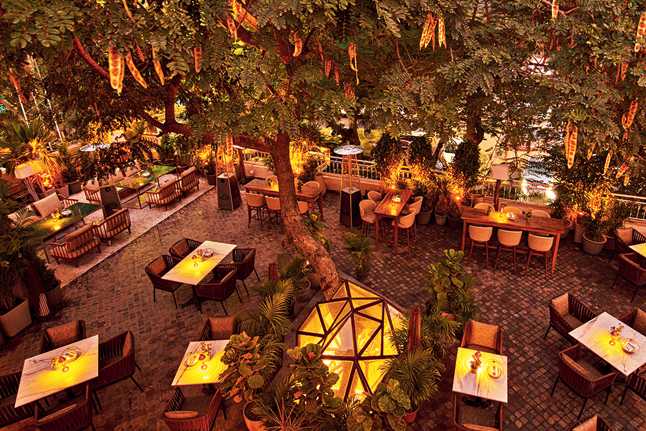
This restaurant is based around feminine sensibilities that focus on a cool atmosphere, light, fresh food and a balcony and view to die for.
Bo Tai
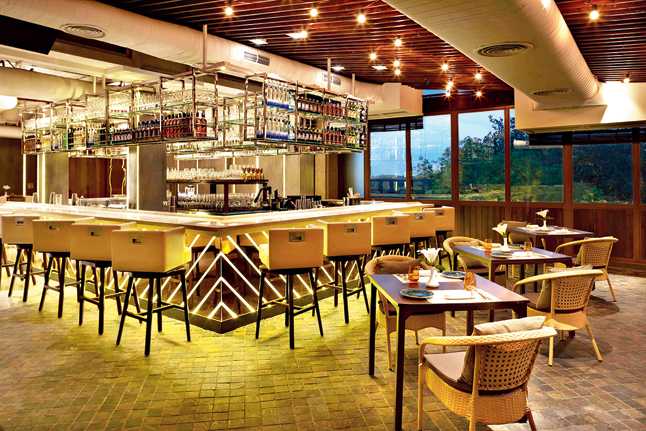
A robust concept that focuses on incredible spicy Thai food with a very vibrant nightlife set in a very alfresco environment.
Farzi Café
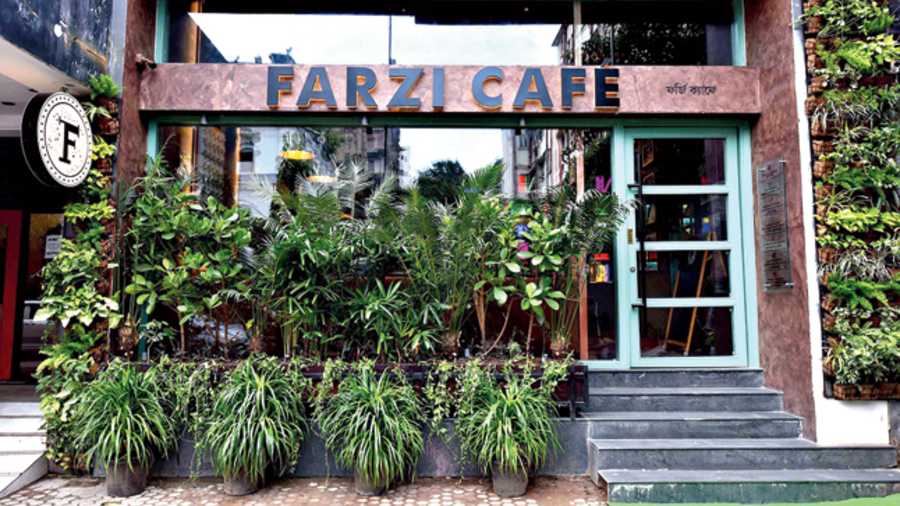
It’s a piece de resistance, it’s the brand that brought cool to Indian food. It introduced a level of hip-ness that didn’t exist before. It’s the single most important brand of Indian origin because it made Indian food relevant again.
Pa Pa Ya
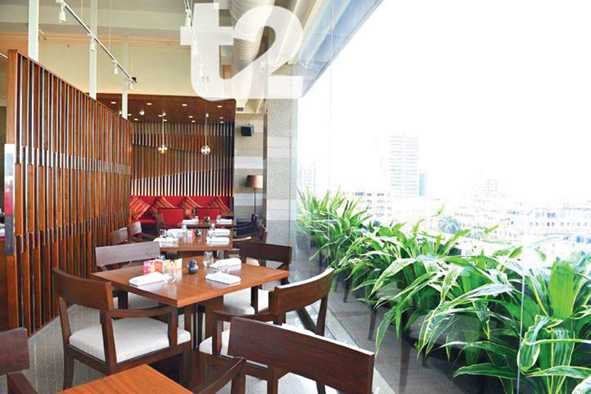
Playful take on all my personal favourites, with a focus on good quality ingredients. Modern techniques but a focus on robustness.
Masala Library
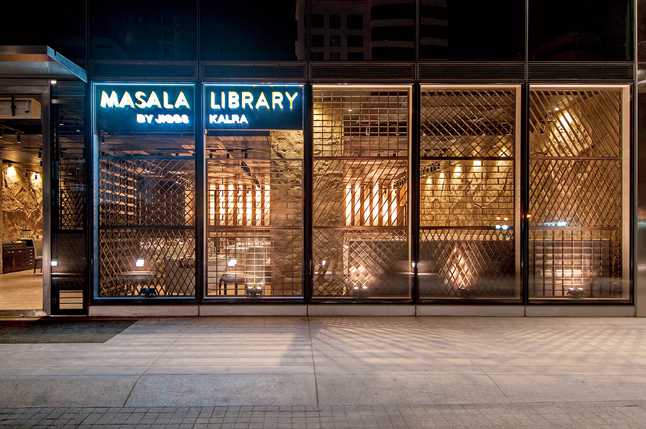
It’s our flagship restaurant. It’s the only restaurant in the country with my father’s name on the door. It’s always going to be the most important restaurant in our stable, and it will always gonna try and break the envelope, always put Indian food at the top of the heap of international restaurants.
Younion
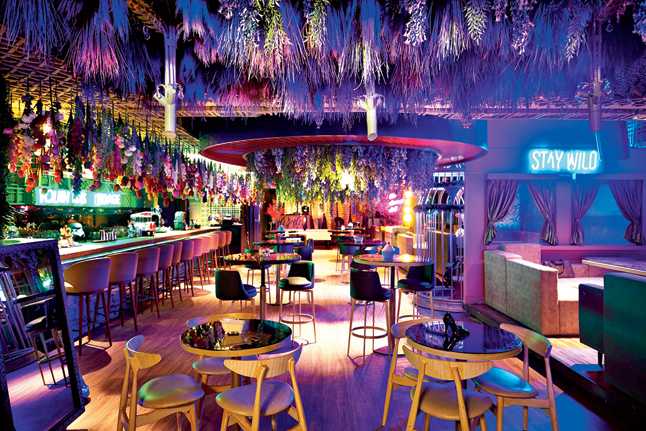
Younion is a concept built squarely for the youth. It’s a unique first-of-its-kind concept that has over 400 kinds of shots, a fun world-cuisine menu that exudes comfort and a high-energy vibe within a restaurant setting where everything is Instagrammable.
Fave restaurant in the world:
Dum Pukht, Delhi, because it was built by my father, developed and conceptualised. He used to take me when he was building it, for the trials, so a lot of memories
First thing you notice when you walk in to a restaurant:
Always the upkeep, the general maintenance, the AC temperature, the floor is clean or not, scratches on the table or not...
Last good meal you had at:
I ordered food home from Matamaal, it’s a Kashmiri restaurant
When not working…:
Upgrading my cars or playing with my computer and upgrading it. I am a gamer but I don’t get to play so much but I love building computers and competing at benchmark records
Ingredients you personally love:
I can’t choose one but high-quality greens are underrated. I just launched Louis Burger where we spent weeks searching for the right lettuce
If you had to host a grand feast for five celebs (dead or alive) who would you invite:
Mahatma Gandhi, Elvis Presley, Dilip Kumarji, Albert Einstein and Freddie Mercury
